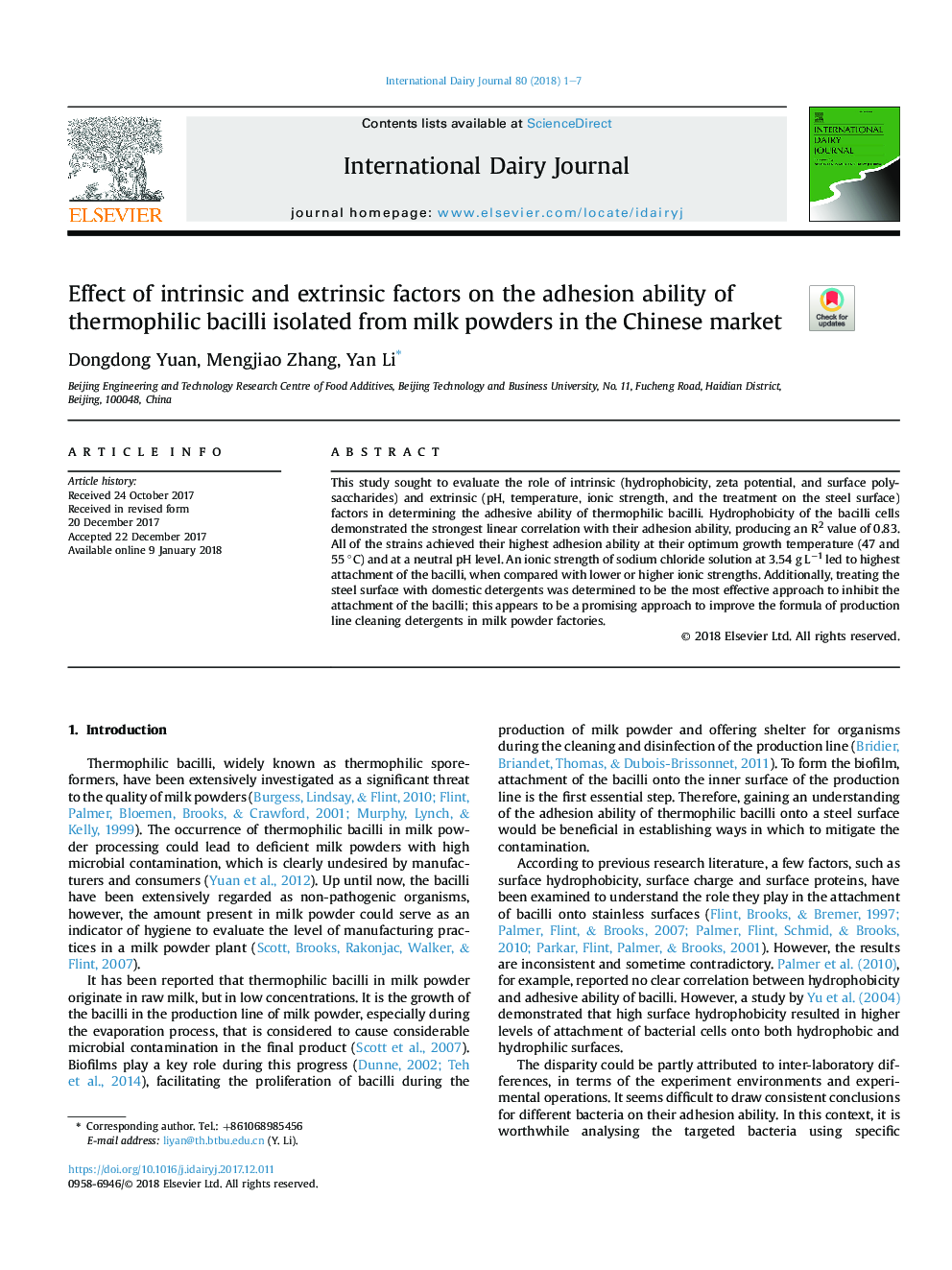| Article ID | Journal | Published Year | Pages | File Type |
|---|---|---|---|---|
| 8499852 | International Dairy Journal | 2018 | 7 Pages |
Abstract
This study sought to evaluate the role of intrinsic (hydrophobicity, zeta potential, and surface polysaccharides) and extrinsic (pH, temperature, ionic strength, and the treatment on the steel surface) factors in determining the adhesive ability of thermophilic bacilli. Hydrophobicity of the bacilli cells demonstrated the strongest linear correlation with their adhesion ability, producing an R2 value of 0.83. All of the strains achieved their highest adhesion ability at their optimum growth temperature (47 and 55 °C) and at a neutral pH level. An ionic strength of sodium chloride solution at 3.54 g Lâ1 led to highest attachment of the bacilli, when compared with lower or higher ionic strengths. Additionally, treating the steel surface with domestic detergents was determined to be the most effective approach to inhibit the attachment of the bacilli; this appears to be a promising approach to improve the formula of production line cleaning detergents in milk powder factories.
Related Topics
Life Sciences
Agricultural and Biological Sciences
Food Science
Authors
Dongdong Yuan, Mengjiao Zhang, Yan Li,
